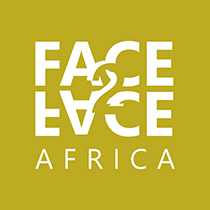In a Tuesday-aired interview with HBO’s Real Sports, South African Olympic champion Caster Semenya said she was willing to show her vagina to athletics officials to prove she wasn’t a male when she was 18.
The middle-distance runner came into the limelight in 2009 after she captured the women’s 800m world title with a very impressive time. The sport’s world governing body later announced it would run gender verification tests on her.
“They thought I had a dick, probably,” Semenya, 31, recalled. “I told them: ‘It’s fine. I’m a female, I don’t care. If you want to see I’m a woman, I will show you my vagina. All right?'”
Semenya’s gender test report determined she did not have a womb or ovaries. The report also showed that she had internal testes – which are the male testosterone-producing sexual organs – and her hormonal levels for that were three times higher than what a “normal” female would have.
The 31-year-old is said to have a condition called hyperandrogenism. Females who have that condition have excessive testosterone, and that hormone expands muscle mass and strength and how the body can use oxygen, Reuters reported.
In 2011, the International Association of Athletics Federations (now World Athletics) ruled that female athletes with hyperandrogenism had to take medication that would suppress their testosterone levels. And though Semenya took the prescribed medication after that ruling, she recalled it had a negative effect on her.
“It made me sick, made me gain weight, panic attacks, I don’t know if I was ever going to have a heart attack,” she told HBO Real Sports. “It’s like stabbing yourself with a knife every day. But I had no choice.
“I’m 18, I want to run, I want to make it to Olympics, that’s the only option for me.”
But in that same interview, World Athletics lawyer Jonathan Taylor begged to differ with the medical panels that criticized the rules the sport’s governing body introduced for athletes with hyperandrogenism.
“You say medically it’s not healthy for me, then my question back to you is: ‘Why do the world’s leading experts say that that is what we would prescribe?'” Taylor said.
In response, Semenya said, “Jonathan must cut his tongue and throw it away. If he wants to understand how that thing has tortured me, he must go and take those medications. He will understand.”
Semenya, in 2020, lost her appeal against the Court of Arbitration (CAS) after the Swiss Federal Tribunal (SFT) upheld the CAS’ 2019 ruling that said the new policy for athletes with differences in Disorders of Sex Development (DSD) was “necessary, reasonable and proportionate” to allow for a balanced competition in female sport, The Guardian reported.
The CAS had ruled that female athletes with high testosterone levels had to take suppressants if they wanted to internationally compete in distances between 400m and a mile.




